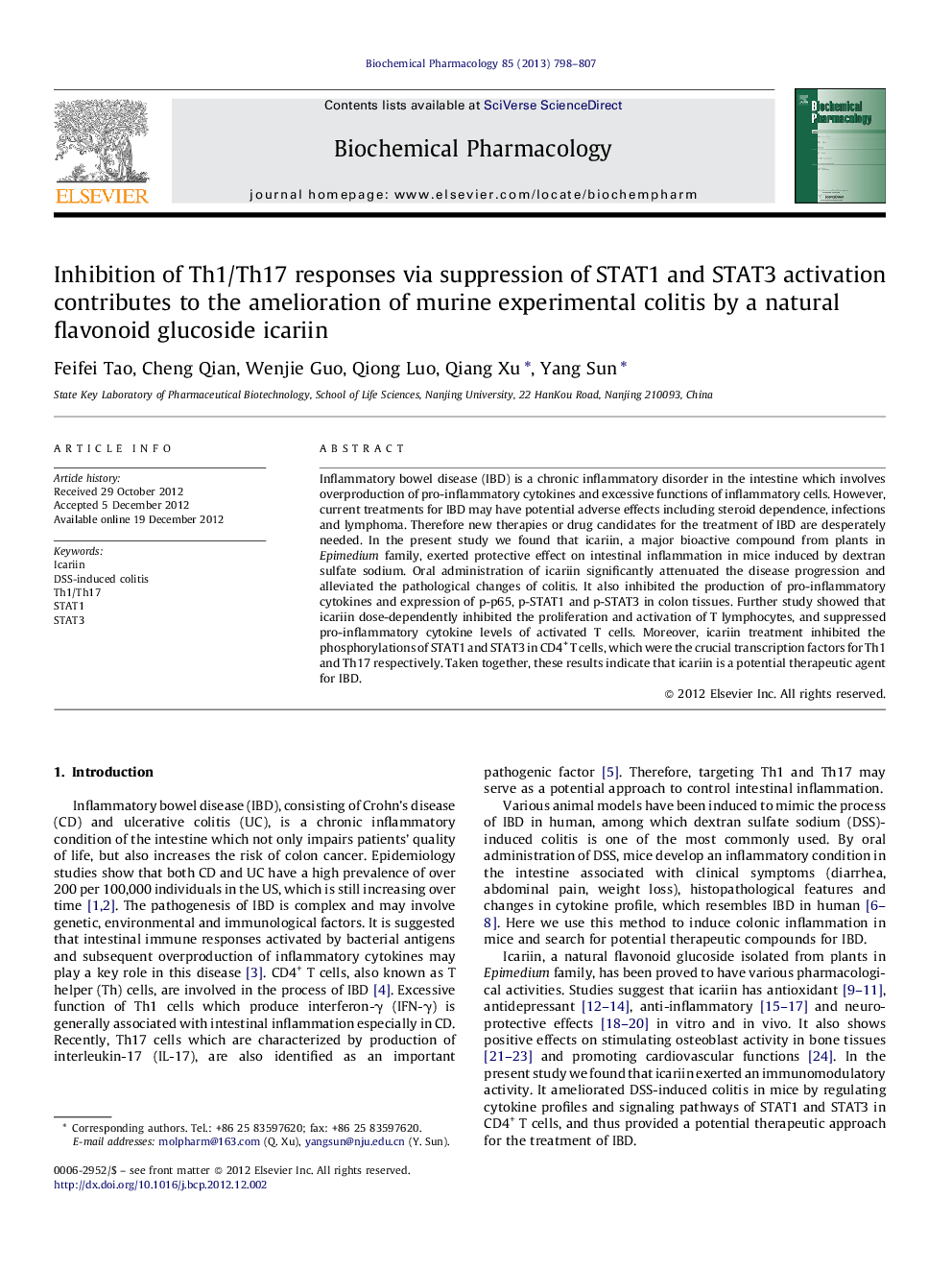| Article ID | Journal | Published Year | Pages | File Type |
|---|---|---|---|---|
| 5823536 | Biochemical Pharmacology | 2013 | 10 Pages |
Inflammatory bowel disease (IBD) is a chronic inflammatory disorder in the intestine which involves overproduction of pro-inflammatory cytokines and excessive functions of inflammatory cells. However, current treatments for IBD may have potential adverse effects including steroid dependence, infections and lymphoma. Therefore new therapies or drug candidates for the treatment of IBD are desperately needed. In the present study we found that icariin, a major bioactive compound from plants in Epimedium family, exerted protective effect on intestinal inflammation in mice induced by dextran sulfate sodium. Oral administration of icariin significantly attenuated the disease progression and alleviated the pathological changes of colitis. It also inhibited the production of pro-inflammatory cytokines and expression of p-p65, p-STAT1 and p-STAT3 in colon tissues. Further study showed that icariin dose-dependently inhibited the proliferation and activation of T lymphocytes, and suppressed pro-inflammatory cytokine levels of activated T cells. Moreover, icariin treatment inhibited the phosphorylations of STAT1 and STAT3 in CD4+ T cells, which were the crucial transcription factors for Th1 and Th17 respectively. Taken together, these results indicate that icariin is a potential therapeutic agent for IBD.
Graphical abstractIcariin, a natural flavonoid glucoside, attenuates dextran sulfate sodium (DSS)-induced experimental colitis in mice through inhibiting Th1/Th17 responses via suppression of STAT1 and STAT3 activation.Download full-size image
